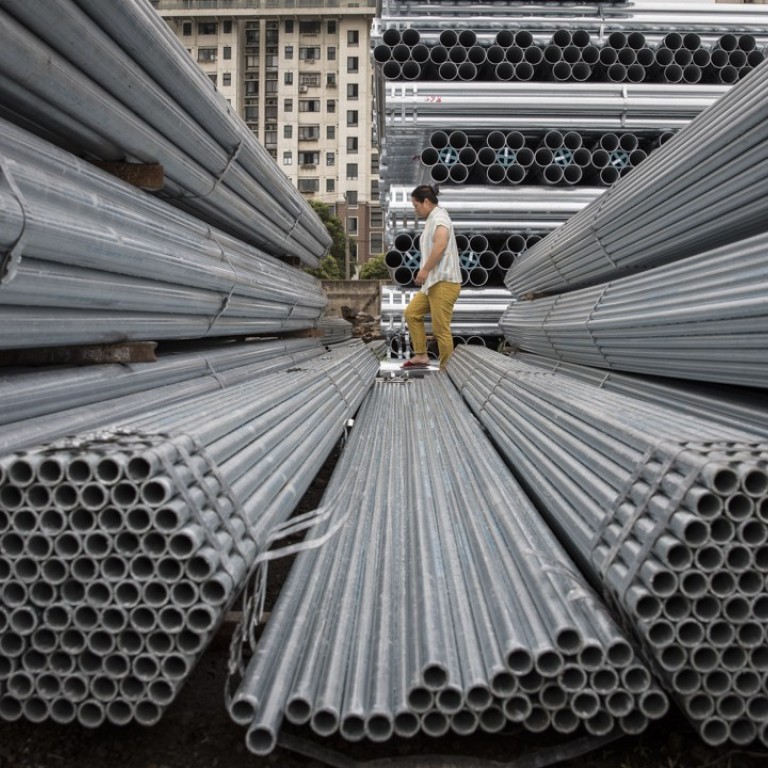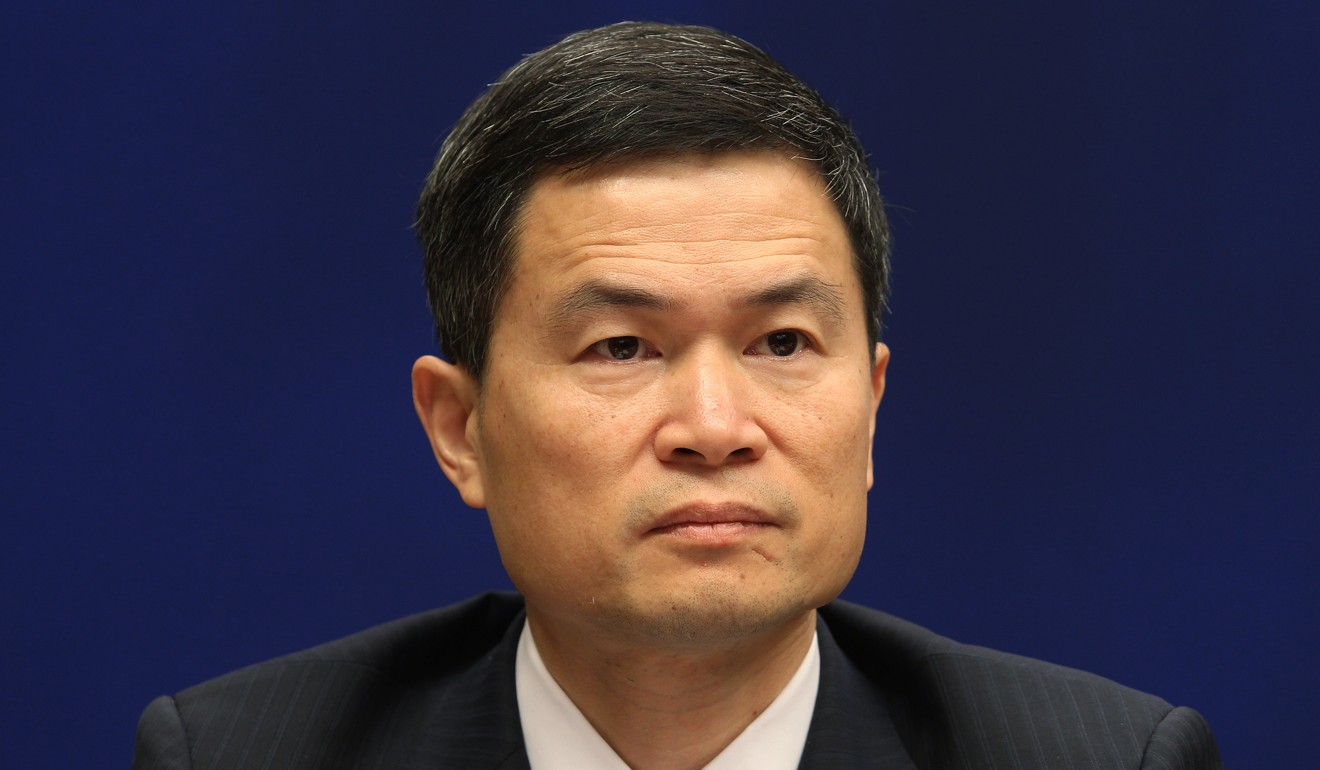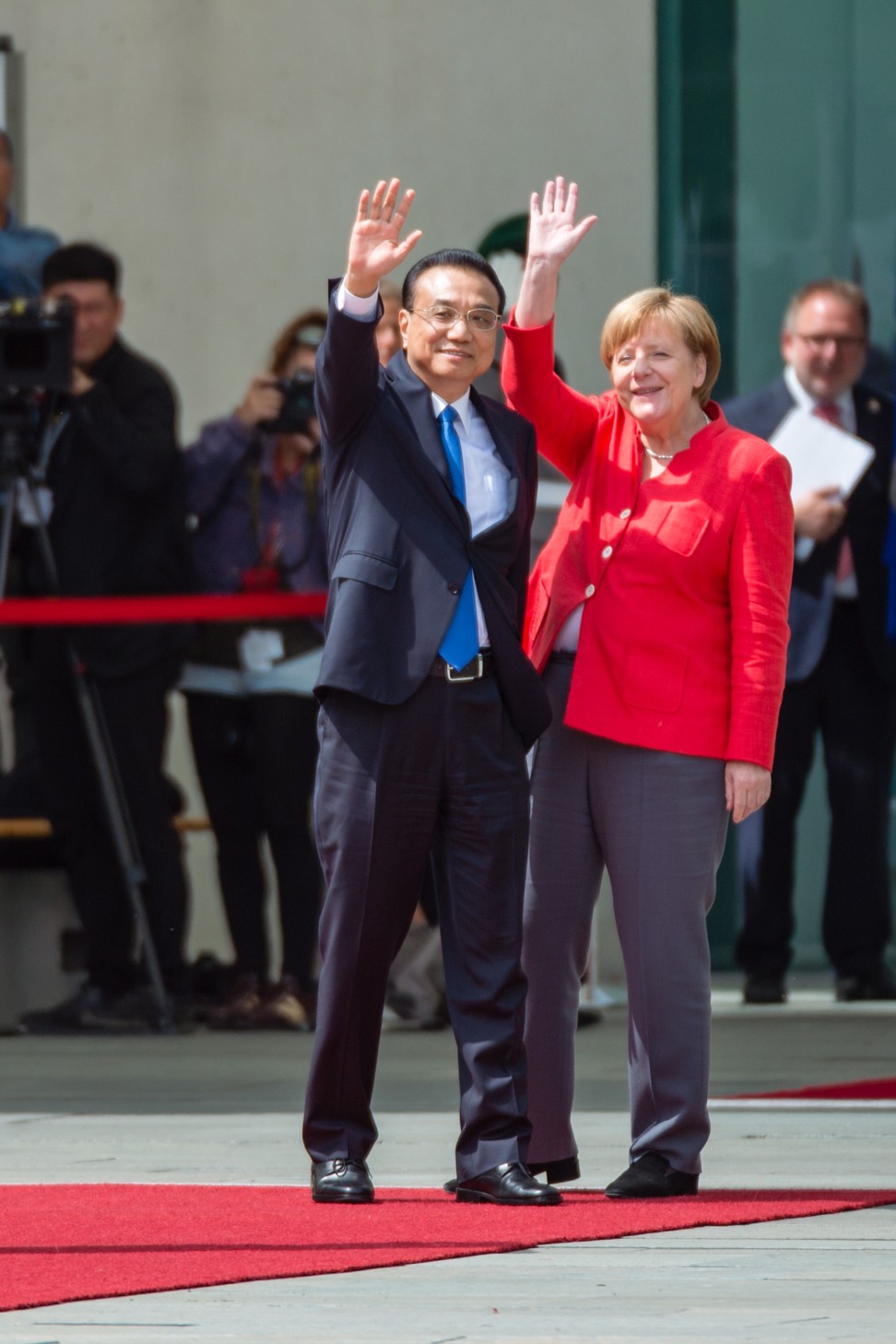
How China plans to push back against Donald Trump in ‘economic cold war’
Government wants to position itself as a champion of free trade and defender of globalisation, says source close to Beijing
As Washington escalates trade tensions with threats of tariffs on another US$200 billion worth of goods, China’s leadership is positioning itself as a defender of the world trade order and, in the words of a source close to decision makers in Beijing, bracing for an “economic cold war”.
The source, who requested anonymity as he was not authorised to speak publicly about Beijing’s strategy, told the South China Morning Post that China was trying to put the trade row into a global context, by illuminating whether the world should uphold the multilateral system under the World Trade Organisation, as China has suggested, or let US President Donald Trump’s unilateralism prevail.
While the former Soviet Union aimed to defeat capitalism during the cold war, Beijing is trying to convince governments, organisations and companies – including US firms – that it is a champion of free trade, and send a message that, in contrast to Trump’s “America first” policy, China is “still open for business” and wants to keep globalisation on track.
Has China found a trade war loophole? Officials tout ‘made in Vietnam’ zones on border amid US tensions
It also sees an opportunity to find common ground with others hit by Trump’s trade wrath – including the European Union, Canada and Russia – and to stand up to Washington. China has, for example, been lobbying the EU to present a united front against the United States trying to unmake the existing world order, and the two sides have agreed to set up a working group to revamp and resolve disputes through the WTO.
“The US is sabotaging the global free-trade system which was initiated by Washington decades ago. This is a new cold war which threatens world peace and global development,” the source said. “China is committed to further opening up … to bring opportunities to the world.”
He added that China would try to push back against Trump’s “trade bullying” to protect its own interests as well as the free-trade system that has helped it and many other countries.
Washington and Beijing on Friday began applying 25 per cent tariffs on US$34 billion of each other’s goods, locking horns in what Beijing called “the biggest trade war in economic history”.
The hostilities intensified on Tuesday as the Office of the US Trade Representative said it was starting a process to levy 10 per cent of tariffs on another US$200 billion worth of Chinese products.
China’s Ministry of Commerce said in a statement on Wednesday that it was shocked by the development, warning that the heightened confrontation could destroy trade between the two sides.
On Wednesday, China’s stocks fell, with the benchmark Shanghai Composite Index losing 1.8 per cent and the Hang Seng Index in Hong Kong down 1.3 per cent. The offshore yuan weakened to test 6.7 against the US dollar – a level that Beijing defended only a week ago.
China had tried to avoid a direct clash with America by offering to buy more US products, but the action was not enough to persuade Washington to drop the punitive tariffs. Instead, the Chinese leadership is grappling with the immediate impact of American moves on the country’s export machine and, more importantly, its heightened economic rivalry with the US in the long run.
A week after Trump said the tariffs would go ahead – and two weeks before they took effect – President Xi Jinping gathered the ruling Communist Party’s senior cadres for a two-day meeting in the capital to talk about China’s role in the changing world and what it should do next.
While there was no mention of the trade war or even the US in the communique from the meeting carried by state news agency Xinhua, it gave insight into Xi’s thinking.
“The world is seeing great change that hasn’t been seen for the last 100 years,” Xi was quoted as saying.
China shouldn’t bet on Trump’s voters deserting him when the trade war takes it toll
The president went on to tell the country’s ministers, governors, generals and ambassadors that they must look back at history to “be clear about China’s role and position in a changing world”.
Government sources in Beijing earlier told the Post that Xi had instructed officials not to compromise China’s chosen path because of the trade war.
That path includes economic reform, and China is ratcheting up efforts to give foreign investors more access to its market. Last month, it shortened the “negative list”, opening up more sectors for investment, while the State Council issued guidelines banning local governments or Chinese firms from “forcing” foreign partners to transfer their technologies – an alleged practice that has long drawn complaints from Trump and many others.
The source in Beijing dismissed accusations that China had stolen technology, saying transfers from foreign companies to Chinese ones were largely voluntary under their standard partnership agreements. But he said China was aware of the concerns and had explicitly banned any “forced” transfers to address the issue.
Foreign companies have complained for years about being coerced to transfer their technology to local partners in joint ventures in exchange for market access in China, especially in the car, semiconductor and new energy battery industries.
Beijing also slashed import duties on cars and consumer goods from July 1, and last week issued a directive to expand imports – from medicines to machines – and to exempt from duties 97 per cent of imports from the least-developed countries.

Over the weekend, Fang Xinghai, vice-chairman of the China Securities Regulatory Commission, said at a forum organised by Caijing Magazine that China’s approach to handling the challenge was to “get its own things done well” – namely, pushing forward the economic reform and opening up that has underpinned the country’s economic rise.
Xi, the most powerful Chinese leader since Mao Zedong, has repeatedly said China would back the global trade system. That system has benefited the country enormously over the past decades, and it is in China’s interest to preserve it, according to the president.
Back in January 2016, Xi said at an internal meeting that China had become the “flag bearer” for free trade in the world, People’s Daily reported.
The world’s second biggest economy and largest commodity trader has been working on multiple fronts – from the G20 to regional trade blocs – to promote easier trade and investments, inviting suspicion from Washington that Beijing is misusing its state machine to distort trade at the US’ expense.
But whether it can win allies that stand in opposition to Washington and match its rhetoric about market opening with action remains to be seen.
US Secretary of State Mike Pompeo last month openly slammed China’s trade practices as “predatory economics 101” and ridiculed Beijing’s promises of opening up its economy as “a joke”.
Meanwhile, the EU Chamber of Commerce in China on Tuesday urged Beijing to create “investment reciprocity” to quell tensions with its trading partners that it blamed on the government’s favouring of state-owned enterprises, a flawed regulatory framework and a general lack of equal treatment for foreign investors.
How the US-China trade war and Hong Kong’s currency peg could combine to create the perfect storm
Brussels had rejected overtures from Beijing to form an alliance against Trump, Reuters reported last week, citing unidentified EU officials and diplomats.
Still, China is pressing on with efforts to show it is sincere about free trade and investment flows. In one of the latest examples, China tentatively agreed to allow German chemical giant BASF to build a huge complex in Guangdong with a US$10 billion investment and 100 per cent ownership of the project.

After a signing ceremony for the initial agreement in Berlin on Monday, German Chancellor Angela Merkel praised China for taking efforts to open up to foreign investment.
“This shows that China’s market opening in these areas isn’t just talk, but action,” Merkel said during a joint news conference with China’s premier, Li Keqiang.
Ding Yifan, a former senior government researcher who now works at the National Strategy Institute at Tsinghua University, said China’s vast domestic market of 1.3 billion people and its complete manufacturing system put it in a strong position to endure a prolonged trade war.
“China will win eventually,” Ding said. “Trump may have underestimated the interconnection of the global economy.”
Former deputy commerce minister Wei Jianguo agreed that by aligning its interests with those of others on the global value chain, Beijing would ultimately emerge as the victor in the trade war and Washington’s unilateralism would be “defeated”.
“The US lost credibility and any moral high ground after it fired the first shot,” Wei said. “China has the endurance needed to win this war.”


